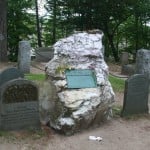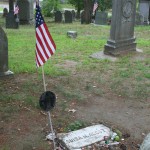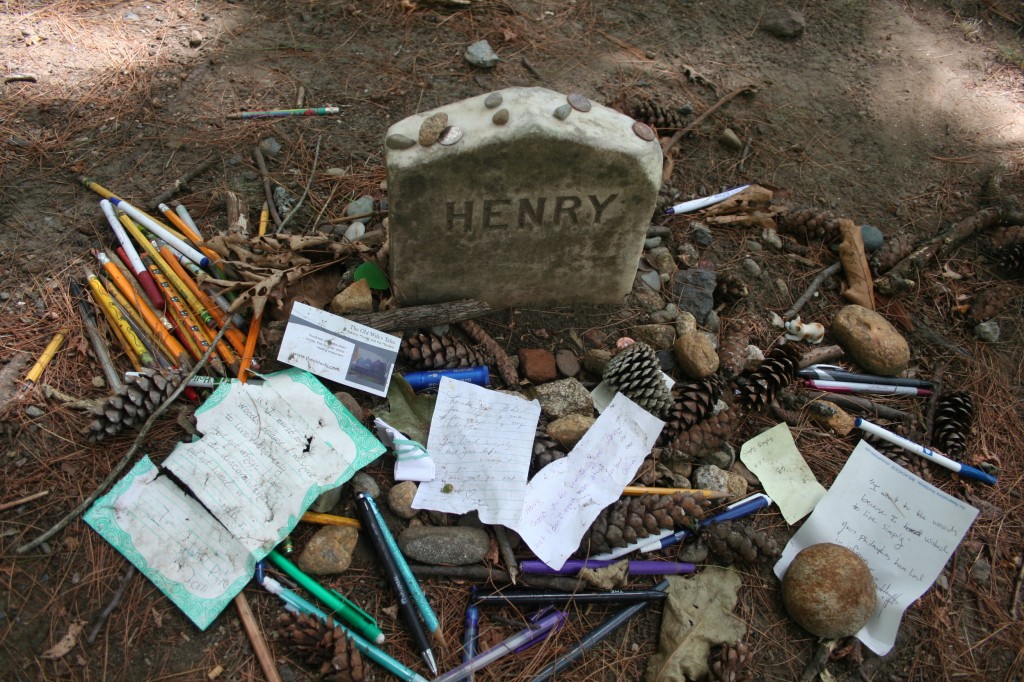We end our Holy Rover tour of Concord (finally!) at Sleepy Hollow Cemetery, the resting place of the authors whose lives and careers were so intertwined during the mid-nineteenth century. It’s one of the most beautiful cemeteries I’ve ever seen (and I’m somewhat a connoisseur of graveyards, so that’s saying something).

One can read a great deal into their grave markers, if one is of a contemplative frame of mind as one strolls beneath the oaks and elms. Emerson’s grave is marked by a massive boulder of uncut stone, a dramatic contrast to the neat rows of conventional grave markers that surround it. Its size recalls Emerson’s status—no one’s going to ignore this monument as they walk through the cemetery—but it also reflects his love of nature and fondness for what is simple and unadorned.
Hawthorne’s grave is much smaller, a modest marker that would likely meet approval from his stern Puritan ancestors. Louisa May Alcott’s is small as well, but I was pleased to see that it includes an American flag and a plaque identifying her as a veteran of the Civil War. How appropriate that her time serving wounded soldiers is recognized in this way! Surely she paid a high price for her service, too, given how she suffered from the mercury treatments she received after she fell ill at the hospital.

Of all the markers, it was Thoreau’s grave that brought tears to my eyes. When you approach it from a distance, you can see a large, impressive monument that bears the name “Thoreau,” but as you draw closer you realize that this is the family burial stone, filled with the names of his relatives. Nearby is a tiny marker that bears a single name: “Henry.” In death, as in life, Henry David Thoreau doesn’t take up much real estate.
Here’s what touched me the most. His grave is obviously a pilgrimage site for many people, for like many holy sites it’s covered with tokens and offerings. I’ve seen hundreds of such holy sites before, but I was surprised and moved by what people bring to Thoreau’s grave. Scattered around the small stone were pencils and pens, plus scraps of paper on which people have written their favorite passages from his work. How utterly perfect.
Thoreau likely would complain about the waste of perfectly good writing utensils, but at the same time, I can imagine him being pleased that after all these years, his words still draw people here, to this quiet spot beneath tall trees.












